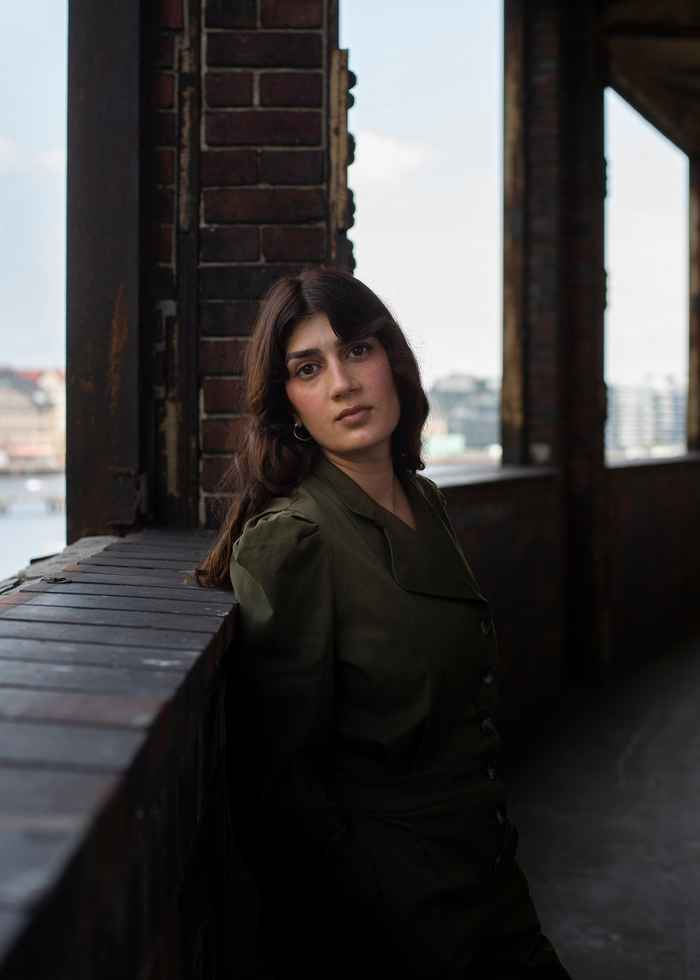Q&A // The State of European Literature
Pre-lecture workshop with Fatma Aydemir
- Date
- 31 May 2023
- Time
- 17:30 -18:30
- Location
- BG 3
- Room
- VOX-POP

Pre-lecture workshop with Fatma Aydemir
On Wednesday 31 May Fatma Aydemir will deliver the fourth State of European Literature lecture in Amsterdam. This keynote is an annual lecture which puts the urgency of the literary imagination as a central concern for Europe today. Due to political polarization and the contestation of the actual fact of the matter of our present condition (whether it is about the current war in Ukraine, our cultural memory, global warming, the division of wealth, or the demographic future of Europe), there seems to be a renewed urge for the truth of literary fiction and the power and precision of poetic expression. Whether it is about the alleged limits to the literary imagination in discussions about identity, emancipation, gender, decolonization, or in the field of contested memories, or about the growing predominance of English as a common European language, literature today seems as vital as ever.
It is our great pleasure to invite you to participate in a pre-lecture workshop with the author at 5.30 pm at UvA’s creative space VOX-POP, hosted by Dr Jesse van Amelsvoort and Dr Leila Essa.
Aydemir’s work as a writer, editor and journalist has significantly shaped the current literary landscape in Germany, most notably her prize-winning novels Ellbogen (2017) and Dschinns (2022) and the pathbreaking essay collection Your Homeland is Our Nightmare (co-edited with Hengameh Yaghoobifarah, 2019). While her fiction inscribes working-class, queer, Kurdish characters into the German literary canon, her collaborative work with other authors equally aims to centre different marginalised perspectives and to bring material change to exclusionary societal structures.
This workshop will offer a group of cultural practitioners, students and academics the opportunity to enter into direct discussion with the author. We’d be delighted if you could attend and ask you to please confirm your workshop attendance by Monday 15 May and send in one or two questions to Fatma Aydemir by Wednesday 24 May.
VOX-POP is a wheelchair-accessible venue. After the one-hour workshop there will be a break in which you can grab dinner before the 8pm lecture, to which you are of course very welcome to register at the link above, too!
We look forward to seeing many of you on the 31st!
The State of European Literature
The State of European Literature is an annual lecture delivered by a renowned author or poet of international stature, about the state of literature and the state of Europe through the perspective of literature. Today, the languages of Europe continue to write and tell stories about the continent, its intimate lives, neighbors and about its shifting position in the present, past and future. Due to political polarization and the contestation of the actual fact of the matter of the continent’s present condition (whether it is about the tectonic shifts in geopolitics, transnational legacies such as colonialism, but also climate change, the division of wealth, or the demographic future of Europe), there is a renewed urge for the truth of literary fiction and the power and precision of poetic expression. Whether it is about the alleged limits to the literary imagination in discussions about identity, emancipation, gender, decolonization, or in the field of contested memories, or about the growing predominance of English as a common European language, literature today seems as vital as ever. The State of European Literature wishes to enhance awareness of the pivotal role of the key values of literature and culture for the current and future state of Europe: curiosity, imagination, reflection, critique, translation, eloquence, tradition, invention (in random order).
Previous speakers were Philipp Blom (2020), Nelleke Noordervliet (2021), and Alain Mabanckou (2022).
The 2023 edition of the State of European Literature is hosted by the UvA-Faculty of Humanities and SPUI25, and supported by ACES (the Amsterdam Center of European Studies), ARTES (Amsterdam School for Regional, Transnational and European Studies), OSL (Onderzoeksschool Literatuurwetenschap) and DIA (Duitsland Instituut Amsterdam).